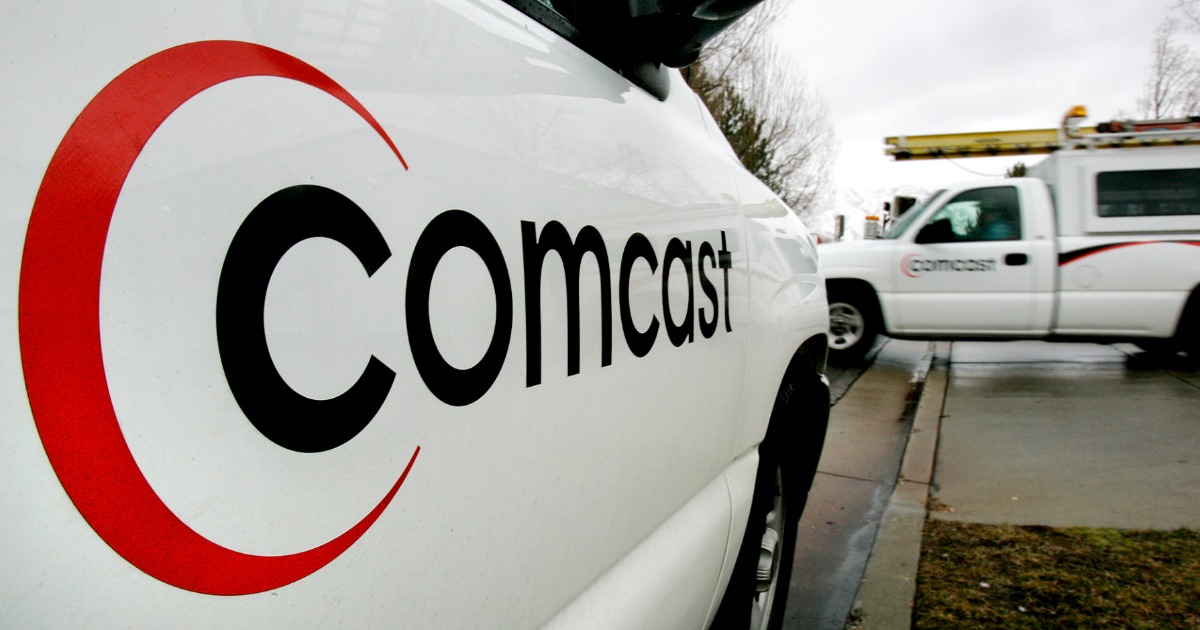If you were to accidentally kill someone with your car or in some kind of horrific accident, police would treat it as a criminal investigation just to be safe. But when American workers are killed on the job, authorities rarely get involved and the worker’s death gets written off as a tragic accident. There’s no incentive for employers to make the workplace safer for their workers, so maybe it’s time we start treating these deaths as homicides?
Transcription of the above video:
Farron: David, I think what’s very interesting about worker-related deaths or work-related deaths, I should say, is that they really always seem to get written off as accidents. We’ve seen a few that have made headlines. We had a BP plant in Texas where there were some criminal charges. Don Blankenship was thrown in jail recently. But beyond that most of the time a worker dies, they say, ‘Oh, it was such an accident. We feel so sorry for the family. Our thoughts and prayers are with you. Now get back to work.’ No criminal investigation. No nothing. How have we become like this? Why is this the way it is? Why is just an accident instead of a crime?
David: Farron, first of all, thanks for having me on.
Farron: No problem.
David: It is amazing that that happens. There are 4,600 worker deaths a year. People look at that and the term ‘accident’ is used all the time. No matter how egregious the safety standards are or what’s going on in the factory or in the field and whether the bosses are actually doing training, still it’s looked at as an accident instead of a crime.
If someone was driving down the highway drunk at high rates of speed not following the law, not following all of your normal, reasonable, rational safety measures and they were exposing other people to the risk of death, we have no problem calling that a crime and wanting to lock these people up and throw away the key for years and years. Yet, when bosses expose their workers to extreme, unsafe conditions that caused their death, the worse that typically happens is a slap on the wrist and maybe a fine of a very small percentage of their overall net worth. This has to change.
Farron: It’s something that we’ve talked about on the show plenty of times. There have been numerous studies on this that show that corporate fines actually do not do anything to deter crime, and yet that’s what we do. When OSHA steps in, when they’re able to actually investigate or look into a worker death, they’ll say, ‘Okay. Well, it’s your first offense. It’s a maximum fine of 150 but, here, 80,000, pay us. Write the check. We’re going to be on our way.’ I mean people die. As you just pointed out: 4,600 people a year. We’re talking about … this is a time when you don’t expect worker deaths. We’re more modern. We’re more civilized. We have rules. We have safety measures. But oftentimes employers just say, ‘To hell with it. It’s going to cost me $100, $200 to get you better safety gear, so I’m not going to do it even though I’m required to do it.’ That’s where the real criminal negligence comes in because they’re making the choice.
David: Right, right. Farron, I think that this is a really good point. Nobody’s coming on here and saying that every time a worker dies in a factory or in the field that that’s automatically a crime. What we’re talking about here is there are extreme cases that happen every … Let’s talk about Don Blankenship. You mentioned him at the opening. Massey Energy. This guy is a monster in terms of what he did. He ran a mining company, and for the types of things that you are talking about, saving $100 here, $100 there in terms of safety equipment, in terms of warning, in terms of being able to get miners out of the mine if something happened, he didn’t follow any of that. 29 people died, 29 workers, fathers, husbands. These are real people that were working for his company for him.
There was a federal investigation, a safety investigation into the mine collapse afterwards. You know what they found? If just basic safety measures had been followed, no one would have lost their life. This was all about corporate greed. This was about a man and a company who put profits ahead of the lives of their employees. Yet, the way it’s reported on … The nightly news comes out and says, ‘Oh, it’s a mining accident,’ where it’s just a tragedy, and it’s awful that this happens. Somehow the mindset is that these families, then, they can sue and do a civil lawsuit. We’re missing the point. The purpose of criminal laws in this country are to punish and to deter and to make sure things like what happened at Massey Energy never happen again.
Those are the crimes, those are the times that … and that happens way more often, Farron … We read it every day. When you actually delve down into the facts of some of these workplace incidents, this is not something that’s a one-off. This is happening all over the country. Unless you punish these people and actually have punishments that fit the crime … You mentioned OSHA. We’re talking about the risk of a six-month jail term or at most a corporate fine of $250,000 for a multi-billion dollar corporation. Do you think they even …? That’s not even a rounding error on their books. But that’s really important. I mean between 1970 and 2013, the feds only prosecuted 88 of these types of cases. Think about that. There’s not only 88 cases of criminal negligence out there. It’s just not something (a) that there are laws on the books to protect people for, and (b) that the feds are even interested in prosecuting. That has to change, and people need to get the word out.
Farron: You brought up the fact that a lot of people think they can just go in and they’ll sue in civil court. Obviously when you get word that your husband or your father has died, the last thing on your mind at that moment is, ‘Well, I guess I got to file a lawsuit.’ But more importantly the companies understand that. We found out from BP and their refinery explosion down in Texas there were actually documents that the company produced and showed their shareholders and their workers … well, not all the workers but management. It’s called the Three Little Pigs documents where they said, ‘Look, if we build the house out of sticks and straw, we save this much money. Yes, we could face liability for a worker death, but that’s only going to cost us this much, so it’s cheaper to ignore safety violations than it is to pay fines and civil lawsuits.’ So companies, like BP, we know for a fact they did that.
David: Let’s pause there. This is a really important point that I don’t think the eyes are open enough in America on, which is that big business in situations like this, it’s … This is BP. They actually sat down and said, ‘What’s the value …’ I’m sorry, ‘What’s the cost …?’ They don’t know what the value of life is when they’re doing this. ‘What is the cost to us if one of our workers dies because of our criminal negligence?’ They add that up and say, ‘You know what? We can afford that. We can let those people die because on the other side we’re going to make millions of dollars in profit.’
When you tell people … I mean this is what we do for a living. We do discovery. We do depositions. We actually talk to the people on the ground, and we find out this is what’s actually going on. But when you tell people on the street, they say, ‘No, big business, they wouldn’t do that. We’ve been taught by their beautiful commercials and their ads in the magazines and on TV about how they love the environment and how they’re out there doing charitable work.’ This is what’s going on. It has to stop because bosses can’t be risking … basically making money off the deaths of their workers.
Farron: It’s interesting because we do have OSHA. We do have federal regulations. So I guess the big question is why are they not out there essentially doing their job? I mean that is what they’re there for, so why aren’t they doing it?
David: Now you’re getting into the political part of it. You have the big business that dumps billions of dollars essentially into the political process nationwide to advance their agenda. They have lobbyists. They put bills together that they want to become laws to protect them. For example, with OSHA, a great example, they make sure that the penalties stay as they are and don’t get to be more severe penalties that might actually cause problems.
Even if there are penalties in place and you talk about regulation … We see this with the FDA. We see it with the EPA. We see it with a number of other agencies. You can have the laws on the books, but if you cut back the funding, which is what these big businesses work on doing, to these different agencies, then there are less people to prosecute and to investigate these crimes, and these crimes don’t even get pursued. Like I said, 88 cases since 1970 have been pursued. That’s not a mistake. That’s because the big business has the money, and they’re the ones that are actually lobbying. Think about it. There’s nobody out there. No disrespect to the unions, but I’m saying on this issue, there’s nobody out there focused or that has been focused up this point on protecting workers whose lives are being put at risk the same way that big business is out there protecting their own money interest.
Farron: It’s interesting. The numbers I’ve seen say it would take more than 100 years just to inspect every OSHA-qualified corporation working in America today, more than 100 years based on current staff for them to just go around and inspect and make sure … That’s not an accident as you said. That’s by design. That’s what the corporations want. That’s why we have to discuss these issues. That’s why we do what we do every day because the people have no idea. They don’t want to think that their employer could be this greedy, but I promise you they can be.
David: This could happen to anyone. This is not just a worker in a mine. I was reading one of the articles about Lawrence Davis, a 21-year-old down in Florida, down your way, who was hired as a temp worker at a Bacardi Bottling facility in Florida. First day on the job, there are all kind … This is just really basic stuff. There are basic laws that say, ‘You know what? If you’re going to work on an assembly line in a dangerous place like a factory or a bottling facility, maybe you should go through some safety training.’ The laws are there that say you have to go through safety training and understand what you do.
Within 15 minutes of him coming in the door as a temp worker on his first day, he’s out on the line, no safety training. They gave him a little booklet but no time for that. He had to go do work. Within the first day, on the first day, there’s a breakdown of the line. He’s cleaning the glass. He doesn’t know that it had broken on the bottling. He doesn’t know how to properly do it or what safety measures. The machine turns back on, and he’s crushed to death because of not knowing about basic safety measures when dealing with this equipment. Like I said, this is what our fathers and our sons and our wives and our kids are being exposed to when they go out into the workplace and there’s no deterrent effect to stop bosses from doing this.
Farron: Again, people like to think that we’re not living in the 1800s where it’s so dangerous just to go work. We like to think that we’re at a more civilized, more industrialized, more regulated time, but in reality we’re not because corporations have weighed the costs, they’ve done the cost benefit, and say, ‘You know what? It’s cheaper. This person’s life is worth less than this safety equipment, so that’s what we’re going to pay for.’ Unfortunately it’s really the families that pay the price of losing a loved one. Again, that’s why we’re talking about this. That’s why you do what you do. That’s why your partner, Michael Burg, who sits with each week, does what he does. Speaking of Michael Burg, I understand he had a new book come out this week.
David: Yes, he did. It’s really fascinating. It’s really great. We’re really excited here. It just got released. It’s on amazon.com, all of the typical places. The book’s name, it’s “Trial by Fire: One Man’s Battle Against Corporate Greed.” Like you said, Mike’s on the show all the time and talking about topics just like this. It’s about his life and his career in fighting for exactly what we’re talking about on this show every week. Basically there’s an amazing story of him growing up in Chicago being bullied, being the low guy on the totem poll, and how he used that to fight back against the big business corporations that are harming this country. I really recommend it. It’s a great read. It’s an important story to understand what’s going on and what it takes to fight big business on these issues.
Farron: Best wishes to Mike. It’s a great book. I can’t wait to finish it. Thank you for talking with us today about this issue, too, David. This is phenomenal. You do great work. Everybody at your firm is absolutely amazing. We appreciate everything, and thank you again.
David: Great, Farron. Thank you.



